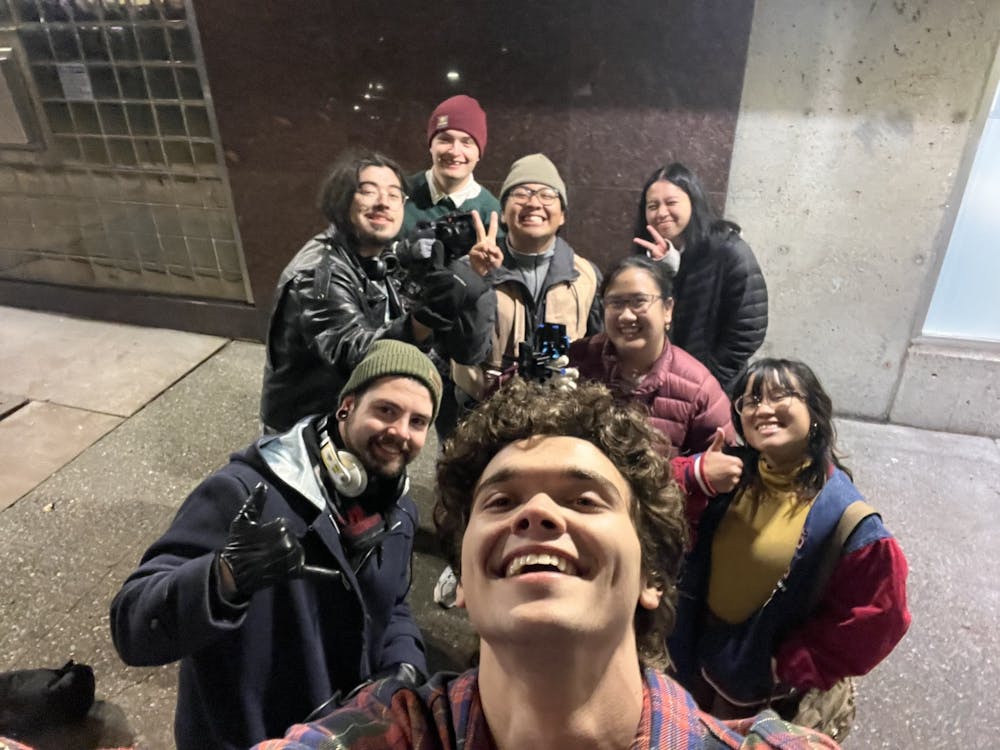Expensive equipment, big-name actors and even bigger paychecks. These are the things that might come to mind when imagining what goes into the production of a film. While that may be true in Hollywood, Western Washington University student filmmakers are creating works of art with the resources they can find right here in Bellingham.
Muymuy Gregorio, a fourth-year Western student and current president of the WWU Film Production Club, uses film and the film club as a way to connect with others and express himself.
“It's a medium for me to express my identity. I immigrated here when I was five [from] the Philippines, so, I'm called a receptive bilingual. I pretty much lost fluency in Tagalog, but I could understand it,” Gregorio said. “And I guess what I'm trying to do with productions … is help people figure themselves out a little more.”
While the idea of making a film can be daunting, especially if you’re unsure of what kind of story you want to make, the initial idea doesn’t have to be perfectly polished, according to Gregario.
“I would recommend people just open Google Docs or Word. I think people worry about the formatting, especially when script-writing,” Gregorio said. “But in reality, you could just write on a sticky note or tissue paper. If you have an idea, just try to throw yourself at it. Just go for it.”

A film still of two student actors walking down a sidewalk on Nov. 16, 2024, in Bellingham, Wash. The project, “Isang Dugo,” focuses on the Filipino-American experience. // Photo courtesy of Muymuy Gregorio
Haven Patrick, a Western graduate and professional filmmaker, got his start cutting together short films on an iPhone with iMovie.
“I started with my Legos,” Patrick said. “One of the very first short films I made was a music video with my sibling’s stuffed animals. You know, if you have to do it by yourself, it's possible, but it honestly is great when you finally find that community of like-minded individuals who also have this passion.”
Finding people to work and create with is often the first hurdle in producing a film. But both Patrick and Gregorio pointed out the many resources Bellingham has to offer.
“There's a Bellingham Film Club, those folks will love to help out with any sort of production as long as you have an outline of what you're trying to make,” Gregorio said. “Also, Cascadia Women's International Film Festival. I work a lot with them and they do help with a lot of outreach.”
Patrick also recommended that prospective filmmakers use the internet as a resource to learn new skills.
“I mean if you have an internet connection, then it's free, pretty much. I learned basically everything I know from YouTube — not even just filmmaking, everything,” Patrick said.

A film still of two student actors smoking by a tree on Nov. 16, 2024, in Bellingham, Wash. Much of the equipment used to shoot the project was rented from Western Washington University. // Photo courtesy of Muymuy Gregorio
Emmett Kineman, a third-year Western student and actor, observed that oftentimes the interpersonal connections a filmmaker has can help them produce their films.
“I've seen people work at a restaurant and be like, ‘Can we film here before opening?’ And that usually works out. So knowing people seems to be really helpful,” Kineman said. “And for a crew, knowing people, having friends to work on stuff. Being in a good relationship with people seems to be a good advantage.”
While Western doesn’t have a film production major, there are still many assets available to students who want quality equipment to use when filming.
“I'd say the main resource I'd suggest is, you could rent out a bunch of equipment, whether it's DSLR [cameras], lighting kits, audio equipment. I didn’t use a boom mic until I got to Western,” Gregorio said. “The [Digital Media Center] is a good resource too. They have a green screen and studio-grade camera equipment.”
Patrick noted that one of the biggest obstacles to filmmaking is the follow-through. He has observed many projects fall through the cracks as the filmmaking process can be daunting.
“I guess be patient with yourself because there's a lot of long periods where I don't really do anything, and then I feel kind of like a failure, but then I feel really good the next time another project comes along,” Kineman said. “So yeah, just really give yourself time to breathe and hone in on what you're doing.”
Ava Nicholas (she/her) is a campus life reporter for The Front this quarter. She is a second-year Theatre and PR journalism major, with an Honors minor. You will often find her rehearsing for her next production, listening to music or out taking photos with her Canon. You can reach her at avanicholas.thefront@gmail.com.






